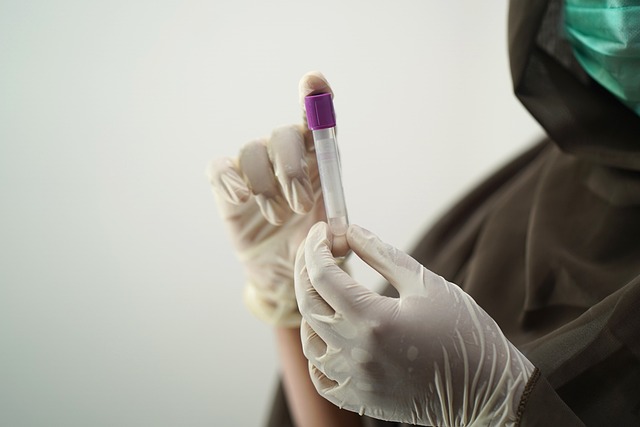Iron deficiency anemia is a common blood disorder caused by low iron levels, leading to fatigue, weakness, and other symptoms. The UK Advanced Liver Blood Test (ALBT) is a crucial diagnostic tool that measures ferritin, transferrin, and TIBC to identify early signs of iron deficiency anemia, allowing healthcare professionals to provide timely and effective treatment based on these key markers.
Iron deficiency anemia is a common yet serious health condition, often caused by insufficient iron levels in the body. This comprehensive guide delves into the detection methods, specifically focusing on the UK Advanced Liver Blood Test—a powerful tool for identifying anemia. Understanding its impact and recognizing symptoms are crucial steps towards effective management. By exploring blood test results and interpreting key markers, individuals can take charge of their health and seek appropriate treatment.
- Understanding Iron Deficiency Anemia and Its Impact
- UK Advanced Liver Blood Test: Unlocking Anemia Detection
- Interpreting Blood Test Results for Anemia Diagnosis
Understanding Iron Deficiency Anemia and Its Impact
Iron deficiency anemia is a common blood disorder that occurs when your body doesn’t have enough healthy red blood cells, often due to iron loss or poor iron absorption. Iron plays a vital role in carrying oxygen from the lungs to every cell in the body, so its deficiency can lead to various health issues. This condition can cause fatigue, weakness, pale skin, shortness of breath, dizziness, and headaches—symptoms that may go unnoticed but significantly impact daily life. In the UK, advanced liver blood tests are a crucial tool in diagnosing iron deficiency anemia. These comprehensive tests assess not only iron levels but also other vital indicators, allowing healthcare professionals to make accurate diagnoses and recommend appropriate treatments.
UK Advanced Liver Blood Test: Unlocking Anemia Detection
In the UK, the Advanced Liver Blood Test (ALBT) is a powerful tool that goes beyond basic liver function assessments. It includes a comprehensive panel of markers, providing insights into various health aspects, including anemia detection. This test measures levels of ferritin, a protein that stores iron in the body. Low ferritin levels are often an indicator of iron deficiency anemia, as it signifies reduced iron reserves. By incorporating ALBT into routine healthcare, medical professionals can identify anemia early on, enabling prompt intervention and treatment.
The UK Advanced Liver Blood Test also evaluates transferrin and total iron binding capacity (TIBC), further aiding in the diagnosis. Transferrin is a protein that carries iron throughout the body, while TIBC measures the capacity of blood to bind and transport iron. Abnormalities in these parameters can highlight underlying iron deficiency, prompting further investigation and tailored treatment plans.
Interpreting Blood Test Results for Anemia Diagnosis
Interpreting blood test results is a crucial step in diagnosing iron deficiency anemia, especially through advanced tests like the UK Advanced Liver Blood Test. This comprehensive assessment provides valuable insights into various health indicators, including red blood cell (RBC) count and hemoglobin levels. A low RBC count or hemoglobin concentration can suggest anemia, as these cells are responsible for carrying oxygen throughout the body.
Healthcare professionals analyze the test results to determine if iron levels are insufficient, indicating deficiency. The UK Advanced Liver Blood Test may also reveal other related factors, such as elevated liver enzymes, which could point to underlying issues like chronic inflammation or liver damage. Combining these findings with clinical symptoms helps in making an accurate diagnosis and guiding appropriate treatment, ensuring optimal patient care.
Iron deficiency anemia is a common yet manageable condition, and early detection through advanced blood tests like the UK Advanced Liver Blood Test can significantly improve outcomes. By understanding the impact of iron deficiency and interpreting blood test results accurately, healthcare professionals can effectively diagnose and treat this condition, ensuring folks lead healthier lives free from the constraints of anemia.
